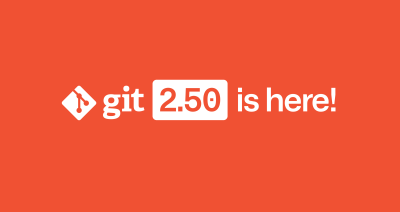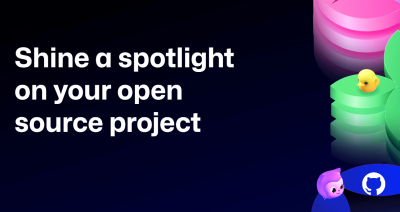Using open source to help the earth
This Earth Day, we discuss how tech and open source are helping two organizations combat the effects of a changing climate.

When I start something new, I love to jump right in and get my feet wet (though, preferably in the Great Barrier Reef). As the new Environmental Sustainability lead at GitHub, this meant within the first few days of my job I was hearing directly from some of the incredible organizations that are leveraging tech to protect the environment.
Coming from Australia, my love for the ocean runs deep, as does my concern for how a changing climate is changing life for all of us around the world. So, I was thrilled to have a chance to speak with Kakani Katija, Principal Engineer at the Monterey Bay Aquarium Research Institute (MBARI), to see how her team is using open source to research our changing oceans.
Moving above ground, I also spoke with co-founders, Lassor Feasley, CEO, and Scott Schwartz, CTO at Renewables.org. There’s huge potential for solutions that both mitigate carbon and accelerate green power, as well as support the adaptation and resilience of communities that are going to feel the impact of climate change. Renewables.org encompasses this idea, and is using tech to bring it to life.
The future of our changing climate is tied inextricably to tech, and these leaders are showing how we can use open source to fight back.
Paull Young
Environmental Sustainability Senior Program Manager // GitHub
Diving into Monterey Bay Aquarium Research Institute
Paull (GitHub): Kakani, I would love for you to tell us about MBARI’s FathomNet project and the work you’re currently doing.

Kakani (MBARI): MBARI cares about building technology and approaches that allow us to study a changing ocean. FathomNet, in particular, is really focused on how to monitor biological systems at scale in the ocean. This is incredibly important when talking about sustainability and climate change, as we have no idea how the blue economy and blue energy projects that are being pushed into the ocean will impact these existing biological communities. We hope that FathomNet will unleash the power of AI in the ocean, enabling the future of conservation, exploration, and discovery.
Paull: I saw that you’ll be coming out with a mobile game soon—what’s the story behind that and how does it tap into the work you’re already doing?
Kakani: We have actually created a game that will be launching in May called FathomVerse. We’ll be pushing data with machine-generated proposals to players who will identify what these different images are, and then community consensus labels will be created and pushed to FathomNet.
This was created because there are a limited number of experts in the world that can identify an animal down to a species or genus level from a visual or an image. But there are actually quite a few individuals in the world—from ocean enthusiasts to people who took a marine biology course—that could identify things that would have value to the research community.
Paull: Do you need any training for that or can anyone download it and help contribute to your mission?
Kakani: You’ll get training through the game and feedback throughout. FathomNet is a source of labeled data and this is mixed in with the unlabeled data in the game. So, you’ll get instant feedback when you’re right or wrong or miss something, but then you’ll also receive delayed feedback on how you compared to the rest of the community consensus.
Paull: I love this. It’s the nature of open source data that’s underpinning this entire game and experience.
Reflecting on Renewables.org
Paull (GitHub): What’s happening with Renewables.org is really exciting; can you tell me more about what your mission is and how your model works?

Lassor (Renewables.org): Renewables.org is the online solar investing nonprofit that’s so far helped finance about a dozen solar projects across the Global South, including India and Africa. We’ve chosen to finance projects in these regions because they’re the places where you have the highest carbon impact per dollar—there’s literally no other product or investment we’ve evaluated that has a higher carbon impact.
Anyone can come to our site and buy a $25 share in one of our projects, and we pay it back monthly over five years. So, if you buy one panel, you’ll start earning back your investment 42 cents at a time and you get fully repaid over five years. As you earn those repayments back, you can either withdraw them back to your personal account or use them to subsidize the purchase of even more panels and have an even greater investment.
This idea came about with one of our board level co-founders, Premal Shah. He’s famous for having helped build Kiva.org—a very popular anti-poverty microfinance crowdfunding website.
Paull: I know you’re still in the earlier stages of your organization and the implementation of open source, but what do those next steps look like?

Scott (Renewables.org): We’ve been identifying open source data we’d like to integrate into the site—things like electricity maps—and we’re currently getting solar irradiation data from OpenWeather.
We’re now planning for scale and would like to move towards an API-first setup for the site. Currently, we’re using the standard features within GitHub (source control, issue tracking), but GitHub Copilot has come in handy as it’s been many years since I worked with PHP and to say I’m rusty would be generous.
The role and culture of open source in sustainability
Paull: Why is open source so important to the work that MBARI’s FathomNet is doing and how are you engaging with that community?
Kakani: Open data is incredibly important because data is collected in silos in the oceanographic community. It’s often limited to individual groups or institutions that have access to the ocean through advanced robotics, research vessels, or something similar. But by making data public and more available following the FAIR data principles, we can democratize access to the ocean. So, that’s one of the reasons why FathomNet exists—as a mechanism for people to evaluate imagery that’s being collected and generate a data set of ocean life that we can build upon as a community and grow over time.
Paull: Do you see any culture shifts happening where this type of data is trending more towards open source?
Kakani: There is a **shift happening where people are starting to recognize that working in open source and making the data open and available is far more valuable to more people. **But it’s a cultural change that takes time. I think we’re kind of in that middle ground where there are still a lot of people waiting to see what happens before they’re going to fully throw themselves and their data into the pipeline and process.
I’m hopeful that what we’ve done with FathomNet already and now with this game, we’ll be able to create massive engagement at scale that will help get us over that fence and get a lot of people contributing within our community.
Paull: How do you imagine open source will further the work Renewables.org is already doing?
Lassor: We have created a methodology in open source around how we prove that these are the highest carbon impact per dollar solar projects that we could possibly fund. And the methodology has three parts:
- How much more carbon intensive is the project we’re investing in than a typical U.S.-based project (usually two or three times)?
- How much more sunshine is there each year (typically there’s about 20% more)?
- How many watts do you build per dollar (two or three times more watts for every dollar that you invest)?
This comes out to about five times more carbon impact invested per dollar on Renewables.org than if you invested the same money in the United States.
Scott: We’ve been committed to making our calculator open source because trust is built with transparency, but also, if the community has a better way to estimate impact, we want to hear it! We want people to have faith in the platform and in the numbers that we’re producing, and the community is great at vetting and improving this work.
How developers and communities shape your work
Paull: How have users or people interested in these topics shaped the work that you do?
Kakani: We’ve had more than a thousand unique players beta test FathomVerse, the game, and what we keep hearing is that they’re really excited about this positive use of AI.There’s a lot of negativity around AI and how information is being extracted as new models are trained. But because we’re so transparent about where the source of the data is coming from, what its use is, and also what the goal is, game players have had a really positive response.
Lassor: We learned a lot from Kiva.org—they have an incredibly engaged community that wants a huge amount of transparency. One thing that we learned from them before we even got started is that climate and sustainability related investments are the most in-demand feature. That’s part of what gave us the confidence to do this.
There are different groups on Kiva.org that collaborate to fund certain types of loans, and the largest and most active one is called Climate Pilots. And we’ve been able to engage that community and recruit some of the very first Renewables.org users. We’ve also been able to more broadly draw marketing insights by watching them and responding to what their needs are.
From the sun to the depths of the ocean, the utilization of tech and open source in a changing climate is far-reaching. These two organizations show us just how big of an impact we can make by leveraging tech for good. To get involved with FathomNet, visit their website or repository. To support Renewables.org’s work, check out their website or add comments to their impact multiplier.
Written by
Related posts

Highlights from Git 2.50
The open source Git project just released Git 2.50. Here is GitHub’s look at some of the most interesting features and changes introduced since last time.

4 trends shaping open source funding—and what they mean for maintainers
Get insights on the latest trends from GitHub experts while catching up on these exciting new projects.

Shine a spotlight on your open source project
Celebrate #MaintainerMonth with two big opportunities to showcase your open source project at GitHub Universe and WeAreDevelopers World Congress. Applications are open. Don’t miss out!
We do newsletters, too
Discover tips, technical guides, and best practices in our biweekly newsletter just for devs.